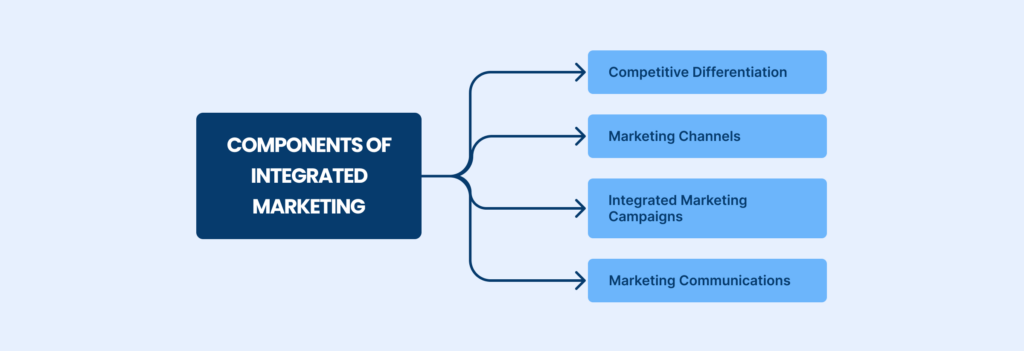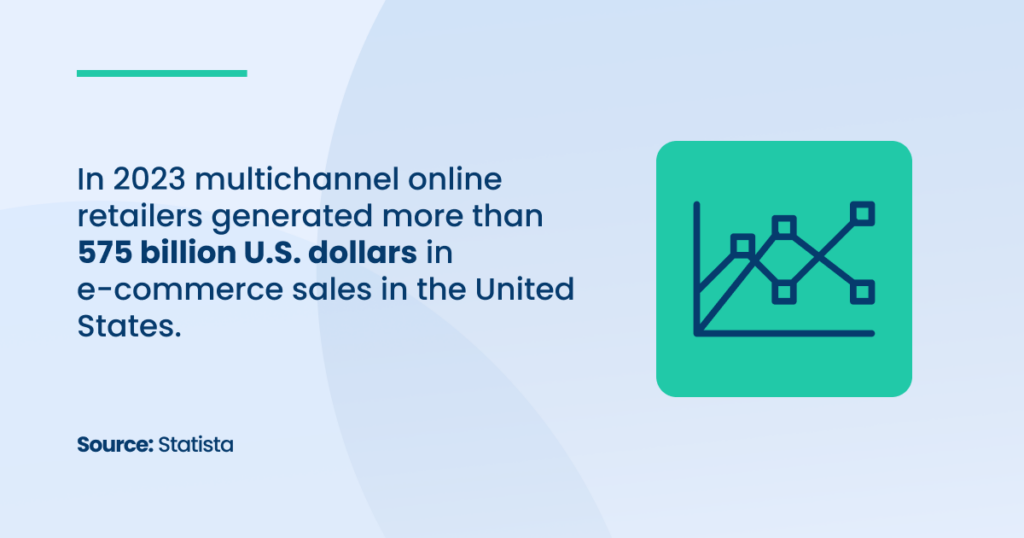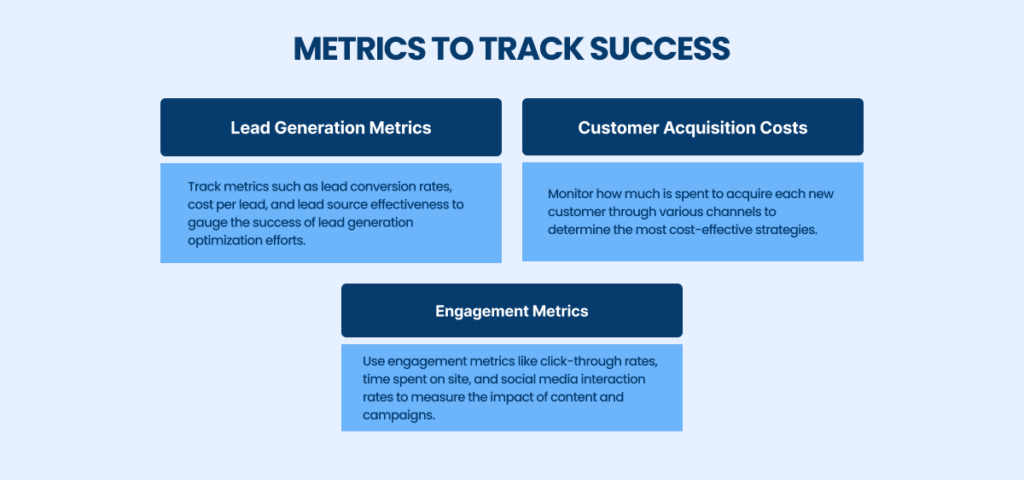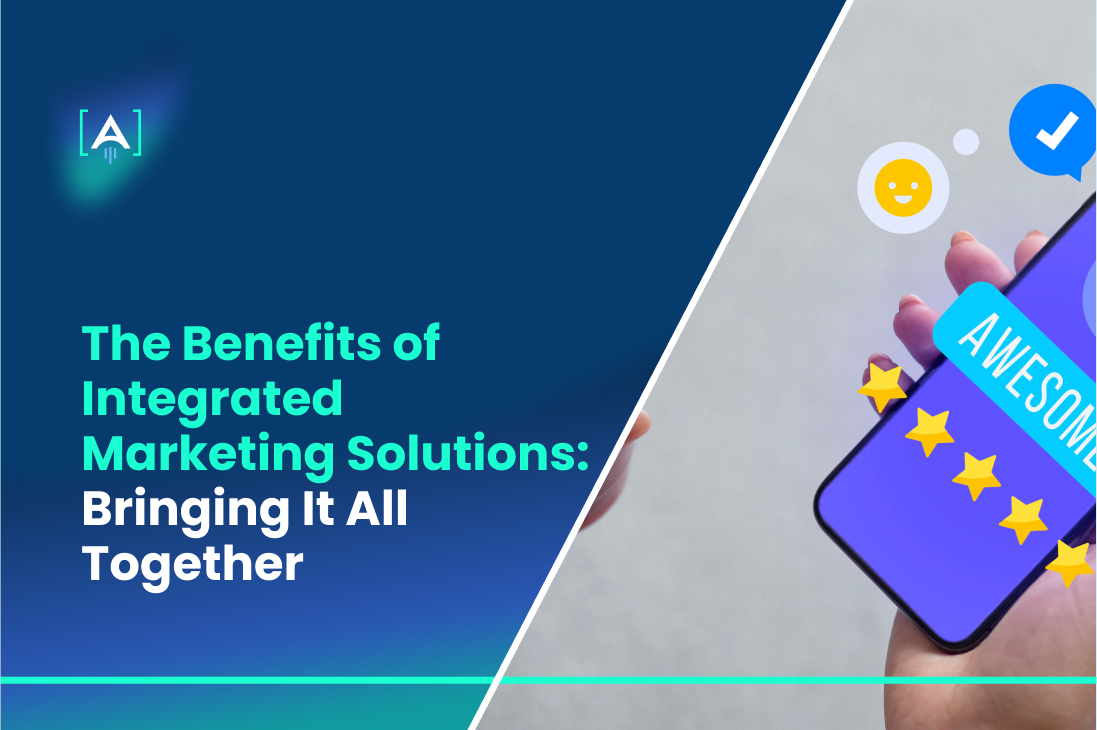Businesses are constantly seeking innovative ways to reach and engage their target audience.
One such strategy that has gained significant traction is integrated marketing.
It’s not just about multiple channels. It’s about creating a seamless, personalized experience that makes customers feel valued and understood.
Effective customer engagement involves actively listening to customers, addressing their needs, and providing personalized experiences.
Fortune Business Insights research notes that multi-channel engagement allows businesses to reach customers through various online and offline platforms, creating a seamless experience.
This approach offers convenience, personalization, and a cohesive business customer journey.

Many companies can leverage robust multichannel approaches and enhance their customer loyalty.
Indeed, a well-defined marketing strategy will be crucial in synchronizing these channels to maximize engagement and retention rates effectively. Fractional CMO Agency can be one of the most significant alternatives.
The blog post will cover generally integrated marketing, the benefits of integrated marketing solutions, and how to bring them all together.
What is Integrated Marketing?
Integrated marketing refers to the strategic approach of aligning and combining various marketing channels and strategies to create a seamless and unified consumer experience.
Over 90% of retail brands use more than two social media channels.
The explanation is simple. This method leverages traditional and digital marketing platforms to ensure that all messaging and communication strategies are consistent across all channels.
Key Components of Integrated Marketing
An omnichannel marketing strategy is crucial in integrated marketing as it ensures a cohesive user experience across all channels, whether the customer is shopping online from a mobile device, laptop, or brick-and-mortar store.
The key is to create a consistent brand presence that allows the customer to move seamlessly between platforms and phases of the sales funnel.

Competitive Differentiation
Competitive differentiation is another vital component of integrated marketing.
This involves identifying and communicating what makes a brand unique compared to its competitors across all marketing channels. This differentiation can be based on product features, customer service, pricing strategy, or overall brand experience.
Successful Integrated Marketing Campaigns
Integrated marketing campaigns involve executing marketing strategies across different promotional tools and platforms. These campaigns are designed to be cohesive and deliver consistent messages across the various channels.
They help reinforce the brand’s message by providing multiple reinforcing touchpoints with the audience.
Integrated Marketing Communications
Integrated marketing communications (IMC) is a subset of integrated marketing focusing on ensuring that all communications and messages are carefully linked.
IMC often combines advertising, public relations, digital marketing, and direct marketing to provide clarity, consistency, and maximum communication impact.
Marketing Channels
The selection of marketing channels is critical in integrated marketing. It involves choosing the right mix of digital and traditional media based on the target audience’s preferences, habits, and behaviors.

Channels could include social media, email, SEO, PPC, television, radio, print, and outdoor advertising, all working together to create a unified brand experience.
Strategic Benefits of Integrated Marketing
Integrated marketing represents a coherent, aligned approach combining various marketing strategies to create a seamless experience that extends across multiple platforms.
This strategic approach leverages both traditional and digital marketing tools to achieve a synergistic effect that enhances brand presence and customer engagement.
Consistency Across Channels
Consistency across channels is a cornerstone of effective integrated marketing. It ensures that every interaction with the brand delivers a consistent message and a uniform experience, regardless of how or where the customer encounters the brand.
To reach as many potential customers as possible, many e-commerce companies implement a multichannel selling strategy, which means that they offer their products or services via different platforms (online and mobile stores, apps, and social media, among others).
Source: Statista
This consistency is crucial in building trust and reinforcing the brand identity.
Improved Customer Experience
Integrated marketing solutions play a crucial role in enhancing the customer experience.
By aligning all marketing channels and messages, businesses can create a seamless experience that resonates on every consumer touchpoint. The strategic involvement of a Fractional CMO, or CMO as a service, allows enterprises to leverage expert insights without the overhead of a full-time executive.
This approach is essential in understanding and implementing strategies that refine customer interactions and boost satisfaction.
- Utilization of Consumer Behavior Analytics: By analyzing data on how consumers interact with the brand across various channels, businesses can identify patterns and preferences. This data-driven approach, guided by a Fractional CMO, helps in crafting messages that resonate more deeply with the target audience.
- Enhanced Responsiveness: Integrated marketing solutions facilitate a more coordinated and quicker response to customer needs and market changes. This agility can significantly enhance customer satisfaction as consumers receive timely and relevant reactions to their interactions.
- Feedback Loop Integration: Effective marketing strategies include mechanisms for collecting and analyzing customer feedback.
Integrated marketing solutions ensure that feedback is swiftly acted upon, which not only improves the product or service but also shows customers that their input is valued, enhancing their overall experience.
Personalization and Customer Engagement
Personalization is at the heart of modern marketing strategies, with integrated marketing solutions providing the framework necessary for effective execution.
Calabrio research states that both consumers (97%) and contact center managers (98%) agree that customer service interactions have an impact on whether consumers stay loyal to a brand.
The role of a Fractional CMO includes overseeing the implementation of sophisticated market segmentation analysis to tailor marketing efforts according to distinct customer needs and preferences. Here’s how personalization enhances customer engagement:
- Targeted Communication: By employing market segmentation analysis, businesses can divide their audience into distinct groups with similar characteristics and preferences. This allows for more targeted communications that are relevant to each segment, increasing the effectiveness of marketing efforts.
- Dynamic Content Delivery: Integrated marketing solutions enable the delivery of dynamic content tailored to the user’s current stage in the buying cycle or interaction history.
Whether it’s through email marketing, social media, or websites, content can be customized to appeal directly to the individual’s interests and needs, leading to higher engagement rates. - Predictive Analytics: Leveraging consumer behavior analytics, a Fractional CMO can help predict future consumer behaviors based on historical data. This foresight allows businesses to proactively address customer desires, potentially influencing their decision-making process favorably.
- Enhanced Customer Journeys: By understanding the various touchpoints a customer interacts with, from initial awareness to post-purchase follow-up, integrated marketing solutions can optimize these interactions to create a cohesive journey.
Each step can be personalized, making the customer feel understood and valued, which increases loyalty and engagement. - Real-Time Interactions: The ability to interact in real-time, a capability enhanced by integrated marketing solutions, can significantly boost customer engagement.
Whether it’s through instant messaging, social media comments, or live chat services on a website, engaging customers at the moment they are most interested can lead to immediate conversions and strengthen customer relationships.
The integration of all these aspects—under the strategic guidance of a Fractional CMO—ensures that each marketing effort is not only consistent with the brand’s message but also maximally relevant to the consumer.
This tailored approach not only enhances the customer experience but also drives deeper and more meaningful engagement, leading to higher conversion rates and improved customer loyalty.
Strategic Planning and Development
The cornerstone of any effective marketing campaign is a robust strategic planning and development phase. This ensures that all marketing activities are aligned with the broader business objectives, setting the stage for measurable success and efficient resource allocation.
Aligning Business Goals with Marketing Strategy
To ensure that marketing efforts drive business outcomes, they must be directly aligned with the overarching business goals. Whether the focus is on lead generation optimization, customer acquisition, or building brand awareness, the marketing strategy should be crafted to support these goals.
- Define Clear Objectives: Start by defining clear, measurable goals such as increasing market share, boosting sales by a certain percentage, or improving customer retention rates through lifecycle marketing automation.
- Integrated Marketing Campaign Planning: Develop integrated marketing campaigns that use multiple channels and tactics in a cohesive manner. This could involve a mix of digital and traditional marketing strategies, tailored to support the business objectives.
- Resource Allocation: Decide on the allocation of resources (budget, personnel, time) based on the expected impact on business goals. For example, allocating more budget to lead generation optimization if the goal is to increase sales.
By ensuring that every marketing activity is linked back to a business objective, companies can create more focused, strategic campaigns that drive real results.
Identifying Target Audiences and Key Channels
Understanding who the customer is and where they spend their time is crucial for effective marketing.
- Market Segmentation: Conduct market segmentation to identify distinct groups within the broader market based on demographics, behaviors, and needs. This segmentation allows for more targeted and effective marketing strategies.
- Customer Profiles and Personas: Develop detailed customer personas to guide content creation, communication strategies, and offers. Personas should be based on real data and insights from customer interactions and feedback.
- Channel Selection: Choose the right channels based on where target customers are most active and receptive. This could include digital platforms for a younger audience or more traditional channels such as print and broadcast media for older demographics. Lifecycle marketing automation tools can help manage these interactions across channels.
By identifying the target audiences and understanding the best channels to reach them, businesses can optimize their marketing efforts to be more effective and efficient.
Measurement and Analytics
Businesses need to measure results and leverage data for decision-making to continuously improve marketing effectiveness. This involves setting the right metrics to track success and using analytics to guide marketing strategies.
Metrics to Track Success
Determining the right metrics to track is essential for understanding the effectiveness of marketing efforts and making informed decisions.

These metrics provide a clear picture of what’s working and what isn’t, allowing businesses to adjust their strategies in real-time to optimize results.
Leveraging Data for Marketing Decisions
Data-driven decision-making is key to modern marketing success. Using the right data can help fine-tune marketing strategies for better performance.
- Data-Driven Personalization: Utilize customer data to personalize marketing messages and offers, increasing relevance and engagement. Tools like data-driven personalization engines can dynamically adjust content based on user behavior.
- Analytics Tools: Employ advanced analytics tools to dig deeper into data, uncovering patterns and insights that can inform strategic decisions. This could include which integrated marketing campaigns are performing best or how different segments respond to various messages.
- A/B Testing: Regularly test different aspects of marketing campaigns to optimize everything from email subject lines to landing page designs. This systematic testing allows for continuous improvement based on actual performance data.
By integrating comprehensive analytics and data-driven strategies into the marketing process, businesses can more accurately target their audience, personalize their messaging, and optimize their overall marketing efforts for better results.
This holistic approach ensures that every decision is informed by data, leading to smarter investments and more successful outcomes.
Partner with [A] Growth Agency for Integrated Marketing Solutions
Integrated marketing is a strategic approach that aligns all marketing efforts to create a cohesive and consistent brand experience across all channels.
By ensuring that every message, touchpoint, and campaign work together harmoniously, businesses will achieve greater brand recognition, customer loyalty, and, ultimately, higher ROI.
[A] Growth Marketing Agency that specializes in this field will leverage the power of integrated marketing. We specialize in turning entrepreneurial dreams into reality with effective, tailored growth strategies.
Growth is our driving force, and we strongly follow the slogan. Moreover, we believe in the power of data to inform and drive every strategy, ensuring our actions are as effective as they are innovative.
Then? Go ahead!

